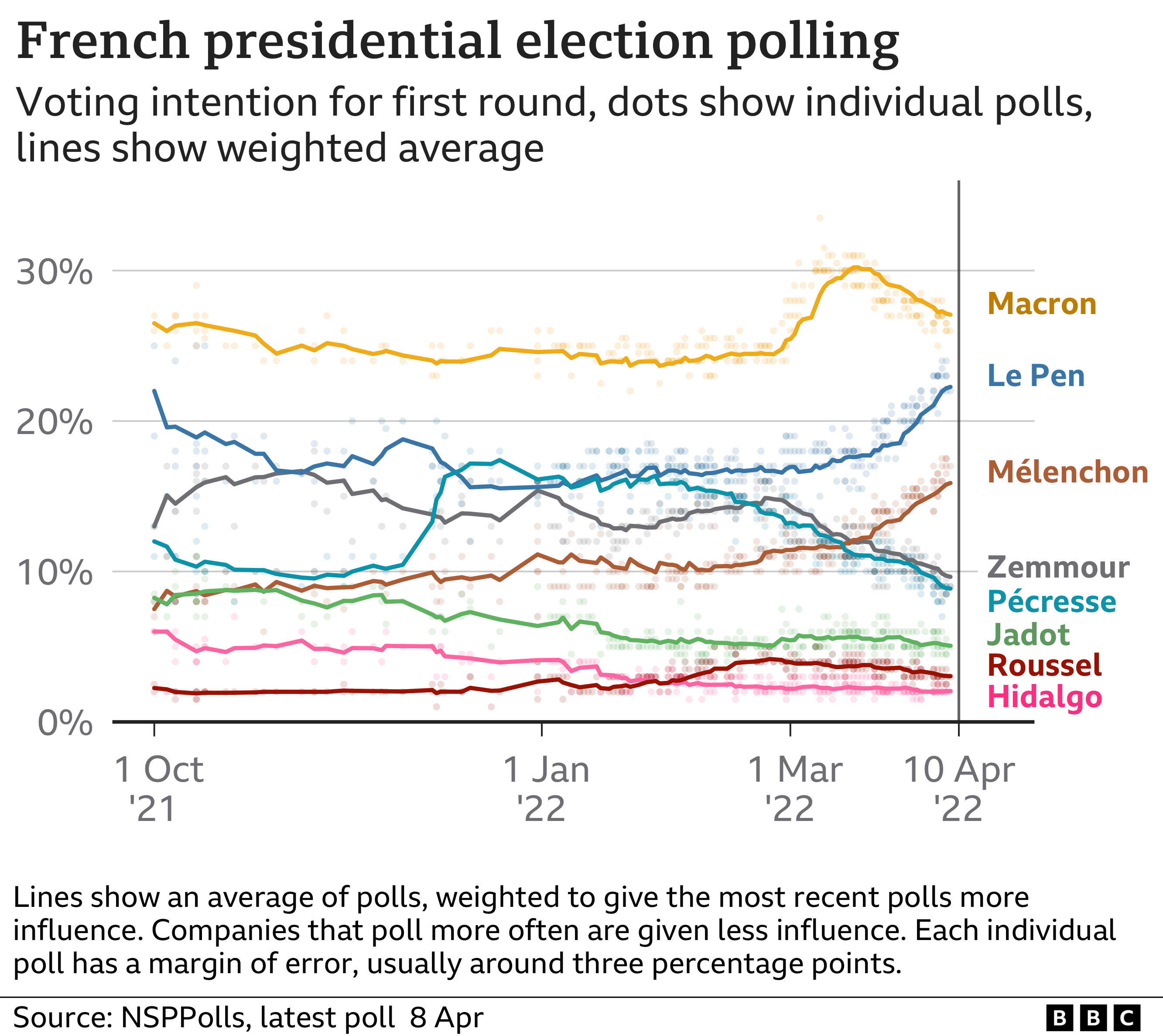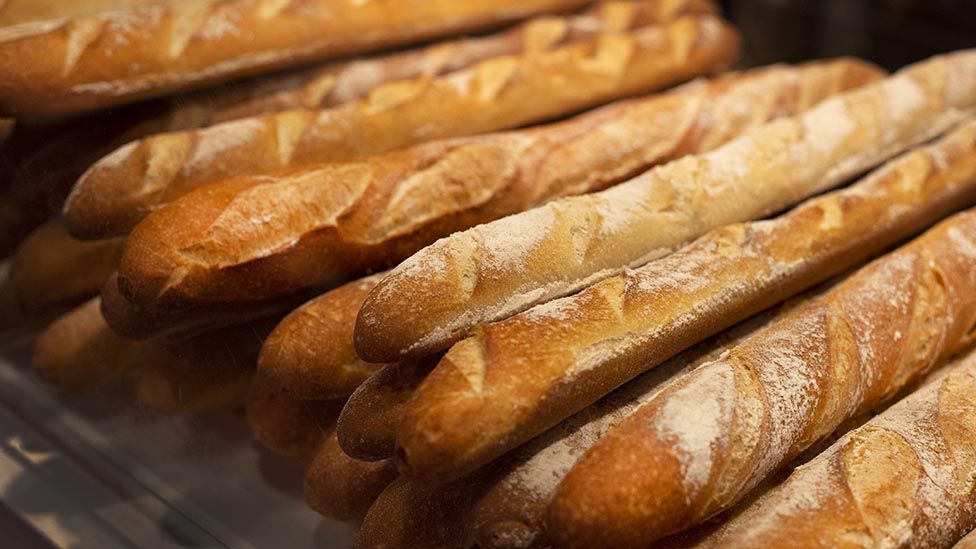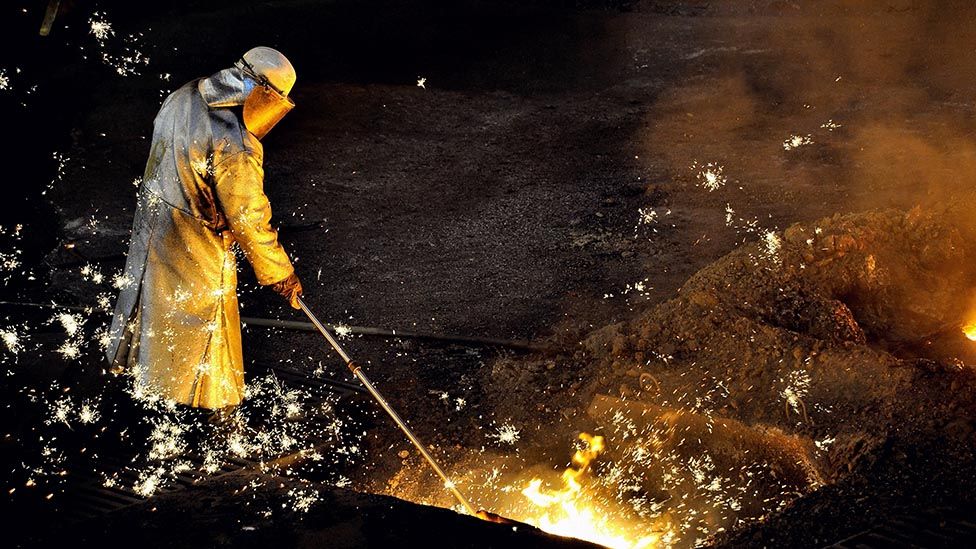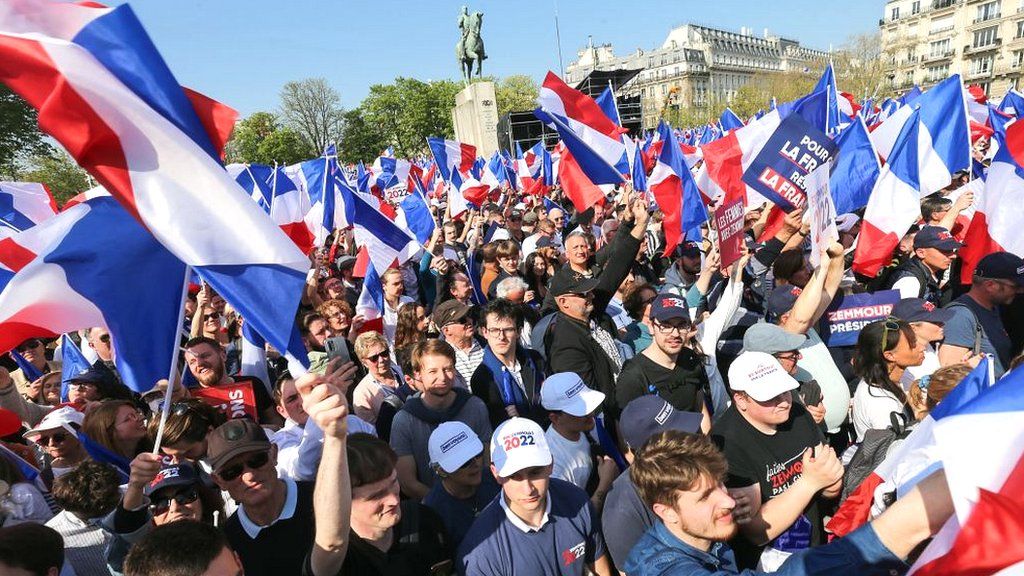
IMAGE SOURCE, AFP
Recent polls have shown a marked fall in President Emmanuel Macron’s lead over his main challenger, far-right candidate Marine Le Pen.
Campaigning has now ended, and voter turnout is expected to be lower than previous elections in France.
Although the race has been overshadowed by the war in Ukraine, the main issue for many voters is the cost of living.
Mr Macron and Ms Le Pen are the firm favourites, but there are 10 other candidates competing to reach the second round on 24 April.
A month ago, Marine Le Pen was trailing Mr Macron by 10 points. Now she is seen as the favourite to challenge him for the presidency in the run-off vote.

Mr Macron’s poll ratings were initially boosted by his diplomatic efforts during the early days of Russia’s invasion of Ukraine, but voters have become increasingly concerned by household bills and rising prices.

An election with many uncertainties
Analysis by Paul Kirby in Paris
It’s the eve of voting, and under French law there is electoral silence here.
That said, there hasn’t been much noise about this campaign until now. It’s been hit by both the war in Ukraine and the Covid-19 pandemic. And President Macron was too busy focusing on Russia’s invasion to get involved until the final week.
Against that background, there are so many uncertainties that could have a bearing on the result.
It’s one reason why Emmanuel Macron spent the last few hours of the campaign trying to land blows on his main rival for the presidency. Because Marine Le Pen is now within touching distance in the polls.

Ms Le Pen has worked hard to tone down her image in recent years, presenting herself as relatable, moderate and fit for the highest office.
For years she has maintained an anti-immigration, anti-EU message that has resonated with disaffected voters. But in the final weeks of the campaign she has focused increasingly on the high cost of living.
Mr Macron is now proposing full employment within five years, cutting taxes for households and businesses, and paying for his programme by gradually raising the retirement age from 62 to 65 – though increasing the pension age is unpopular with voters already facing a spending crunch.
Analysts are predicting that voter turnout will be so low that the record abstention rate of 22.2% set in 2017 will be surpassed.

More on France’s presidential vote
CANDIDATES: Who’s in the race to challenge Macron in France?
HOW IT WORKS: A really simple guide

-
Far-right Le Pen closes in on Macron in French race
1 day ago
-
Why France’s daily bread is costing so much dough
20 hours ago
-
Will France’s ‘forgotten’ workers get support?
3 days ago
-
Zemmour criticised over ‘Killer Macron’ rally chants
29 March
